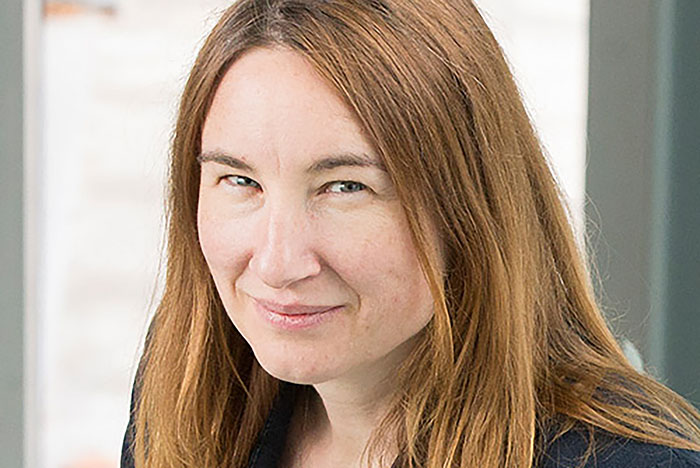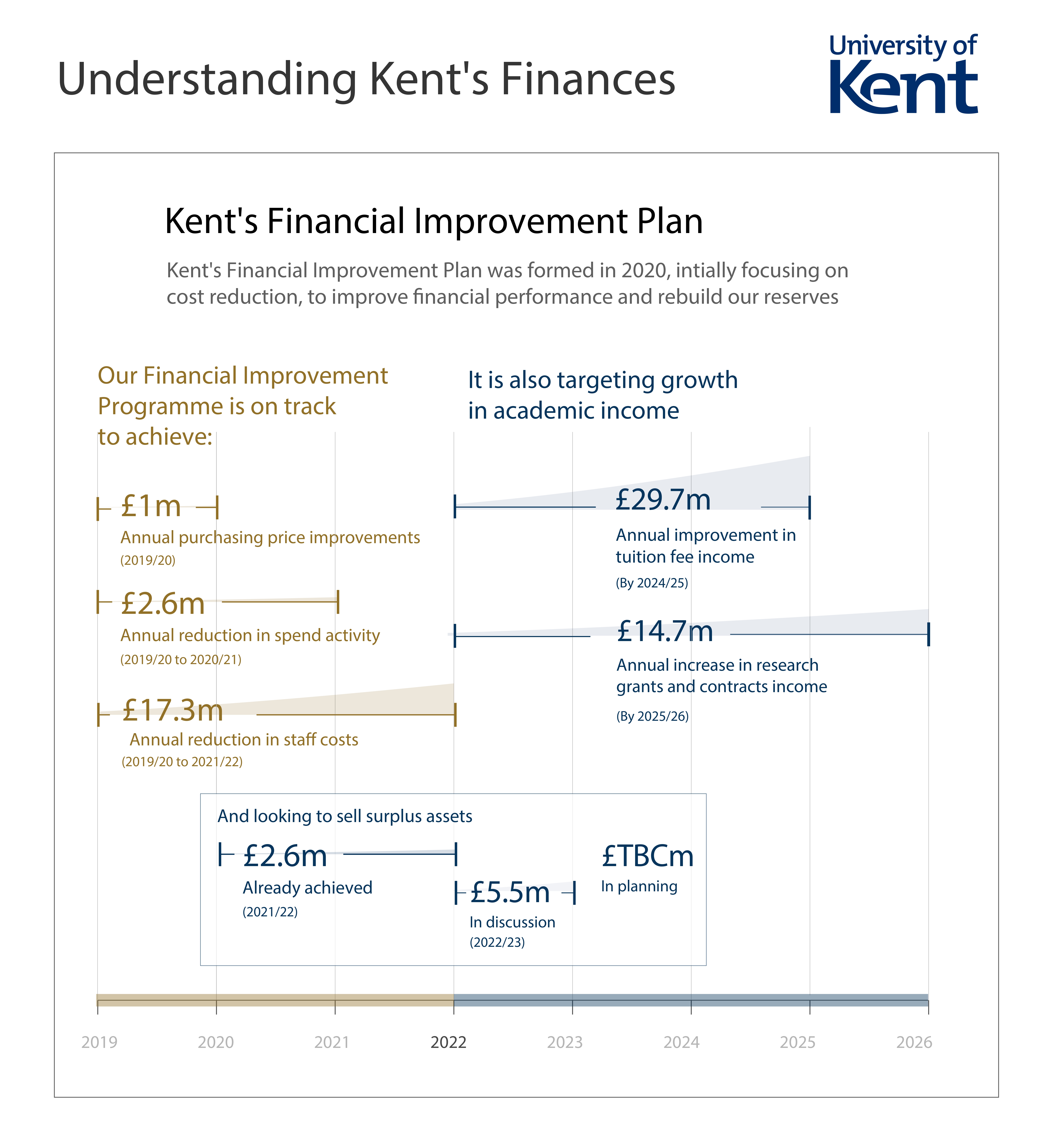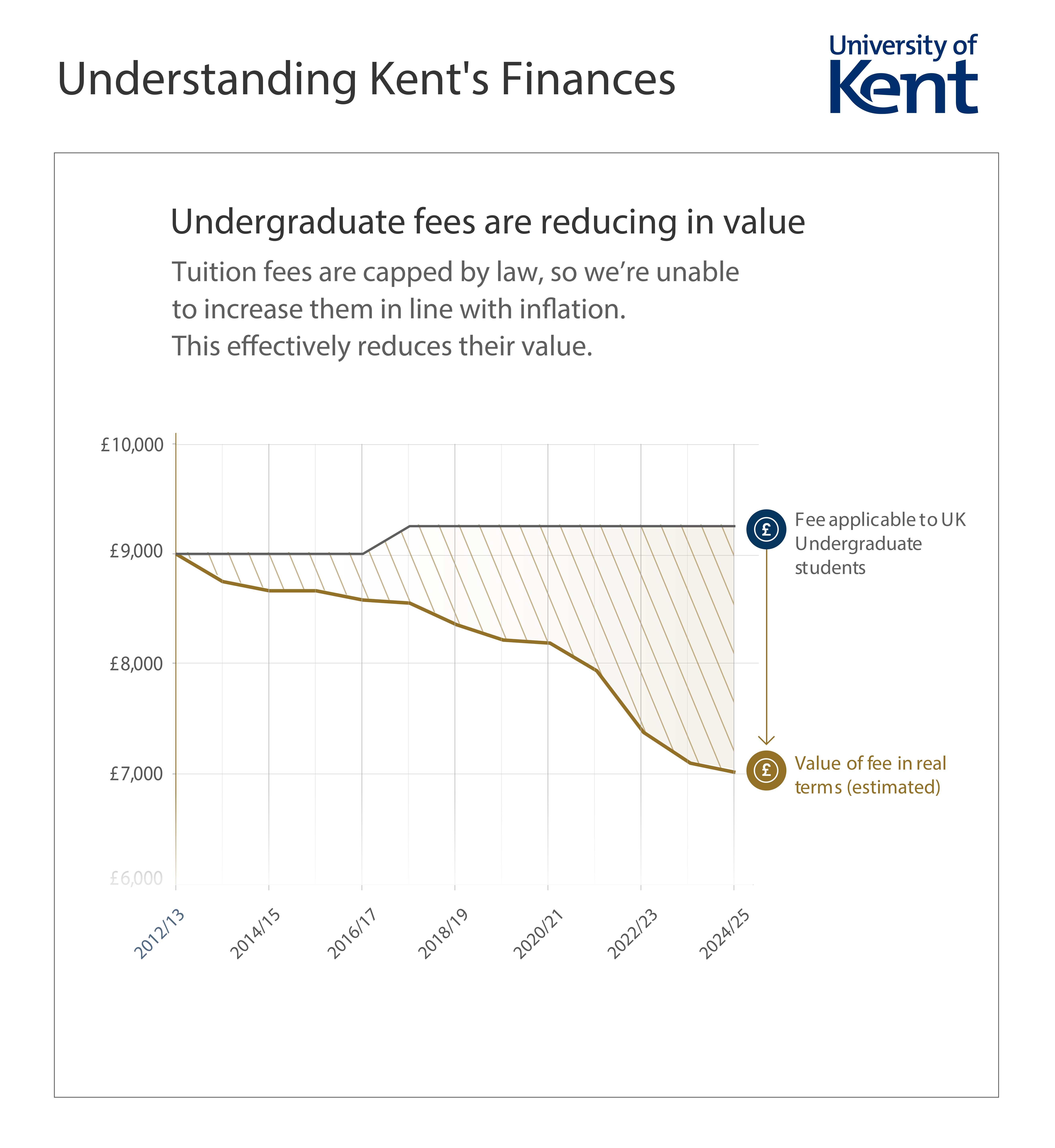As the Vice-Chancellor updated in her recent Community Catch-Up, the financial challenges facing us here and across the sector are only becoming more acute. The challenge of the flat tuition fee set by the Government and rising inflation, at levels that are currently significantly above the norm, means that we have less to work with each year. Combined with the rising cost of living more widely this means we are having to plan for how we could reduce our costs. Along with reducing day-to-day spend on goods and services, this is going to mean looking at our ways of working to see how we can deliver our key activities and run our operations more efficiently. We need to retain our focus on key initiatives in areas where we are looking to grow our income sustainably, but our financial outlook means we are going to need to make further savings in the cost of running our operations in the near future.
Throughout January, high-level discussions have been taking place to start looking at how we could do this. In particular, Directors across areas have been looking at the relationship between Divisions and central Professional Services teams to find ways we can work together more closely while maintaining the positive aspects of the current divisional model. We want to ensure we keep the principle behind locally delivered Professional Services while reducing the disconnect that exists at times between different areas. We also want to build resilience and address issues with workload by ensuring there is enough resource in the right places to deliver the service and strategic functions we need.
Our academic divisions have been through a couple of cycles since they were formed and it was always the intention to review how the relationship between them and central teams were working once new structures had bedded in. It’s also natural they evolve based on what we’ve learned – both the bits that are working well and areas, such as processes, that have been more challenging. Alongside this, the financial landscape we are in has shifted significantly since we reshaped professional services and launched Divisions and we need to find a more efficient and sustainable way of delivering services as a result. None of this is a reflection on the hard work taking place across teams but is the difficult reality of the financial challenges we face as a sector.
Following the initial discussions in January which focused on how we work together, detailed work now needs to continue at senior level through February to establish what this might mean in practice. We recognise that there are a number of different ways we could approach this and it will take time to scope this out, with nothing finalised at this stage. I am, however, grateful to those who have helped inform this so far for their input. I know it can be unsettling for everyone whenever we have to look at savings and it’s not a position any of us would choose – however, it’s important we are all aware of the challenges we face and I will continue to update you all on this work as and when plans start to take more shape.


